These Canadian entrepreneurs saw gaps in the children’s clothing market, and filled them with cute, comfy, eco-friendly designs. —Sheri Radford
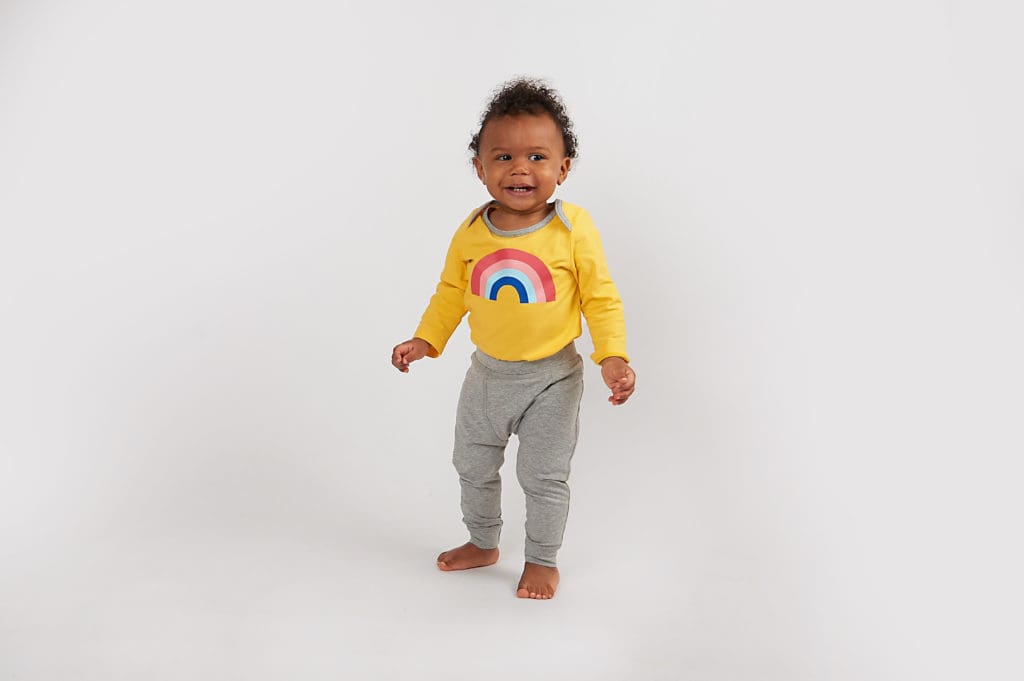
pk beans. According to Mr. Rogers, “Play is really the work of childhood.” Traci Costa has dedicated the last 15 years to building what she calls the “uniform” for that important work: cute but comfortable and durable clothing that allows children “to stretch and bend and jump and move.”
After Costa’s first child was born, she felt disappointed by the kids’ clothing available on the market; it all seemed restrictive and poorly constructed, not at all suitable for her busy, active, independent daughter. At around the same time, Lululemon was gaining prominence as a brand. Costa asked herself why she couldn’t create something similar for children: “functional, fashionable clothing.”
And so, with no background in fashion or design, she launched, in 2006, Peekaboo Beans, out of her Vancouver basement. The name was inspired by a game she played with her daughter with edamame beans. The company grew into such a thriving online business that, in 2016, she took it public. Last year, the company rebranded to become PK Beans, a more grown-up moniker that reflects how the brand (and its customer base) has matured.
The company has always focused on “designing for playful living.” Costa worries that “with structured activities and academic pressures and technology taking over kids’ lives, there’s a real draw away from play.” But, she says, “Play is the backbone to a healthy start in kids’ lives.”
Along with play, Costa feels passionate about the environmental effects of her creations: “Paramount to every decision we make is the sustainability of the product.” This concern for the planet led her to launch PK RePlay in 2020. Gently used PK Beans clothing is mended or altered, then resold. If a piece can’t be repaired, its fabric is repurposed into hair scrunchies, face scrubbies, doll clothing and bedding, bean bags, tooth fairy pillows, dog toys and more. Workers with multiple barriers to employment do all the sewing.
Thanks to PK RePlay, Costa has become reacquainted with a few of her favourite pieces from over the years, including a Fairy Tale Coat from 2009 that had her oohing and aahing over its “magical aesthetic.” It’s readily apparent that each PK Beans creation comes with a dash of magic.
imagine perry. One evening over a glass of wine, Lena Shaw was trying to come up with a name for her new swimwear business and also attempting to convince her husband that they should have a third child. She’d always loved the name Perry for a girl, so she asked her husband, “Can you just imagine Perry?” Hearing it out loud, Shaw realized she’d stumbled upon the perfect name for her company. Soon, Imagine Perry was born—and, a bit later, daughter Perry followed.
The idea for the company sprang from Shaw’s frustration trying to find well-made swimsuits in muted neutral colours for her daughters. It started as a hobby project three years ago, but last year she quit her teaching job to pursue her dream full time. She gets behind-the-scenes help from her husband, a lawyer who makes time to crunch numbers, order fabrics and pack shipments. Perry, at age two, isn’t involved yet (beyond being an inspiration), but the older girls, at five and almost nine, put stickers on boxes.
Shaw acknowledges that her swimsuits cost more than items in a big-box store, but the quality is worth it. She uses polyester fabric recycled from plastic water bottles, which is purchased from a store in Vancouver and printed locally, and manufactures the suits here, too. “I think that it’s becoming so much more important to people to support local, and it feels good,” she says.
Imagine Perry also makes swimwear for women, and it’s essential to Shaw to offer inclusive sizing. The company website features models from different ethnicities with a range of body types. Plus, all of the two-piece suits are available in mix-and-match sizing. Shaw knows women often feel daunted buying a swimsuit, especially online, so the company offers a full return policy.
In June, Imagine Perry will launch some bright floral prints, which Shaw’s daughters are over the moon about. Other ideas under development include a UPF 50 sunhat for kids, a beach cover-up for women and adjustable straps for the women’s swimsuits. When asked where she gets her ideas, Shaw responds with a sigh, “Oh, I spend so much time on Pinterest.”
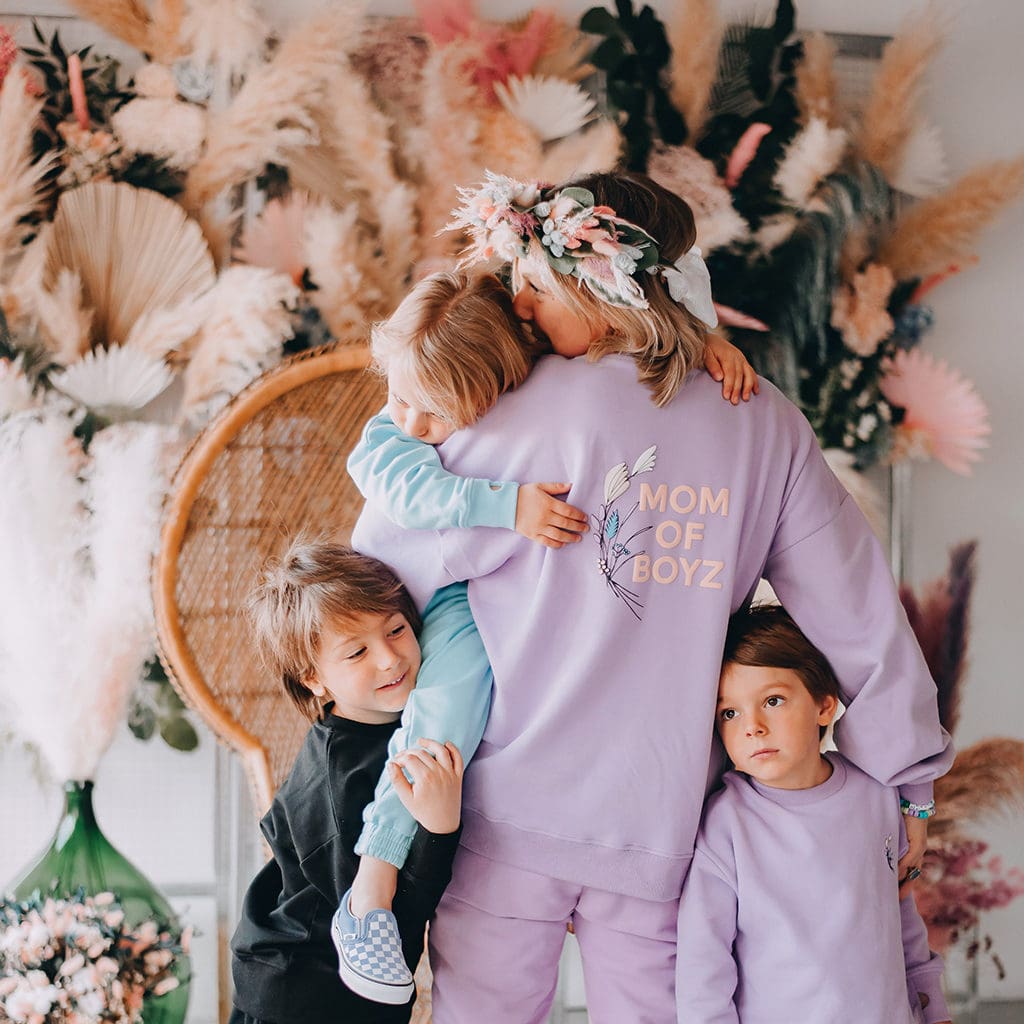
birdz. At the start of 2020 Caroline Lévesque and her sister, Stéphanie, were juggling six kids between them, along with two full-time jobs and their side business, Birdz. Soon after the pandemic began, they appeared on the French version of Dragons’ Den. That’s when Birdz exploded. The siblings realized the time was right to devote themselves completely to their business, so they quit their day jobs, rented an office and moved everything out of Stéphanie’s basement.
Stéphanie has three sons; Caroline has two girls and a boy. After struggling to find clothing for their boys in colours other than blue, black or white, the sisters decided to try making vibrant, colourful pieces themselves. Caroline says, “We really jumped into that world without knowing a thing about fashion. When we look back, we’re like, how did we make it?” They launched Birdz in 2017, with an eye toward sustainability, and surrounded themselves with people who did know about fashion. Because they’re based in Quebec, they wanted a company name that would be easy to pronounce in both English and French; they chose a name that is also a nod to their children, their “little birds.”
At first they just made clothing for kids, but quickly noticed that the two largest sizes always sold out immediately. They learned that women were buying these pieces for themselves. They started making sweats and tees for women and, later, men. “So now the full family is included in Birdz,” Caroline says. Their perennial bestseller is the Chalet Sweat: a cosy long-sleeve sweatshirt that comes in solids and fun prints, like jungle and water skis. And, just in time for Mother’s Day, they’ve launched an adorable collection of sweats for proud moms of “boyz,” “girlz” or “tiny creatures.”
The Lévesques hope to expand their business outside Canada in the future, possibly to Australia first. But, after a tumultuous 2020, they’re taking things slow. As Caroline says, “We want to do it one step at a time.”
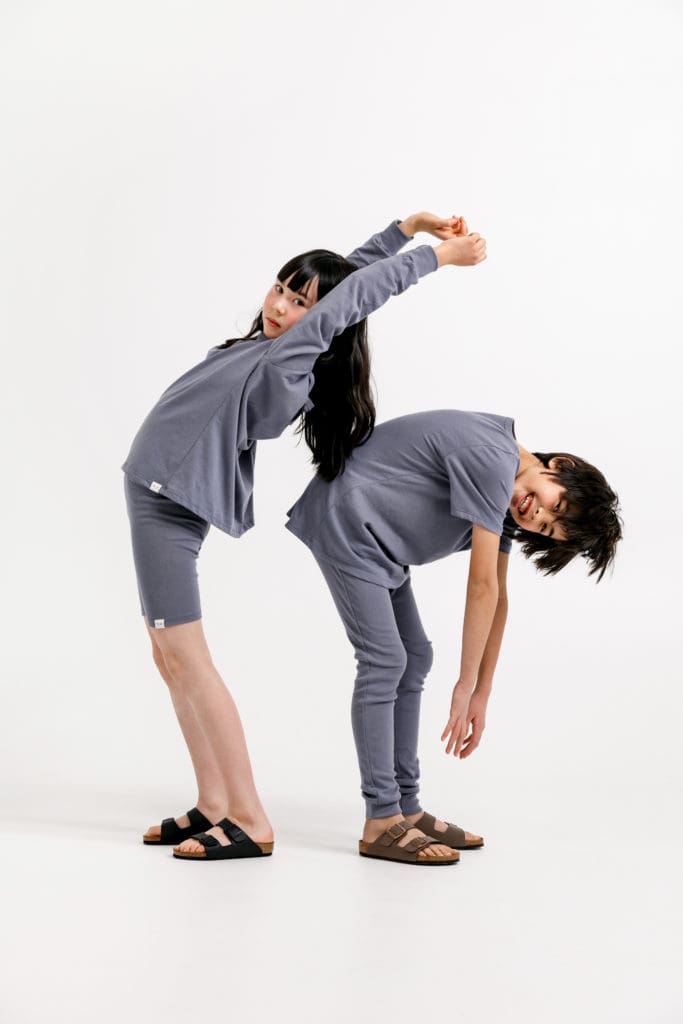
petits vilains. Rachel Shamash and Jennifer Christie have been BFFs since kindergarten. Some people might say that going into business with a friend is a recipe for disaster, but not these two. “It’s a dream come true,” says Christie. “We have very different brains but so many similarities in how we want to work with each other.”
“It helps that we have different domains,” adds Shamash. She’s in charge of marketing and ops, while Christie handles the creative side, coming up with the brand’s classic-looking designs. It was back in 2012, after they each had their first child, that Christie noticed the lack of choice in children’s clothing in Vancouver. Shamash was living in Brooklyn, and Christie envied the “beautiful, heirloom-quality clothes” her pal was able to find in New York. The two discussed their love of kids’ clothing and joked they should start their own brand, to fill such an obvious hole in the market. But it wasn’t until after they each had a second child, and Shamash moved back to B.C., that the stars aligned enough for them to launch Petits Vilains. They chose the tongue-in-cheek “little villains” name as a playful acknowledgement that children can be mischievous little devils at times but still charming and loveable.
Now, Shamash and Christie agree that leaving the corporate world to be their own bosses and work on products they believe in was the right path, and it feels extremely rewarding. They focus on making ethical, sustainable choices at every step, from choosing natural, organic fibres as much as possible to implementing a reusable bin system at their factories, which eliminates the use of one poly bag per garment, as is common in clothing manufacturing. Pieces are made in Vancouver, and everything is thoughtfully designed so that a single garment can fit a child for up to two years.
The brand’s goal is to create tops, pants, skirts and dresses that stand the test of time. According to Christie, “We want to create styles that can be passed down.” They each buy a lot of secondhand clothing for their own children, and they aim to create garments that are sturdy and timeless enough to survive into that secondhand economy.
Throughout the entire process, Shamash and Christie never to forget who, ultimately, they’re creating Petits Vilains clothes for. Shamash says, “We really think about the kid who’s going to wear them.” Christie adds, “And the mom who’s going to appreciate them.”
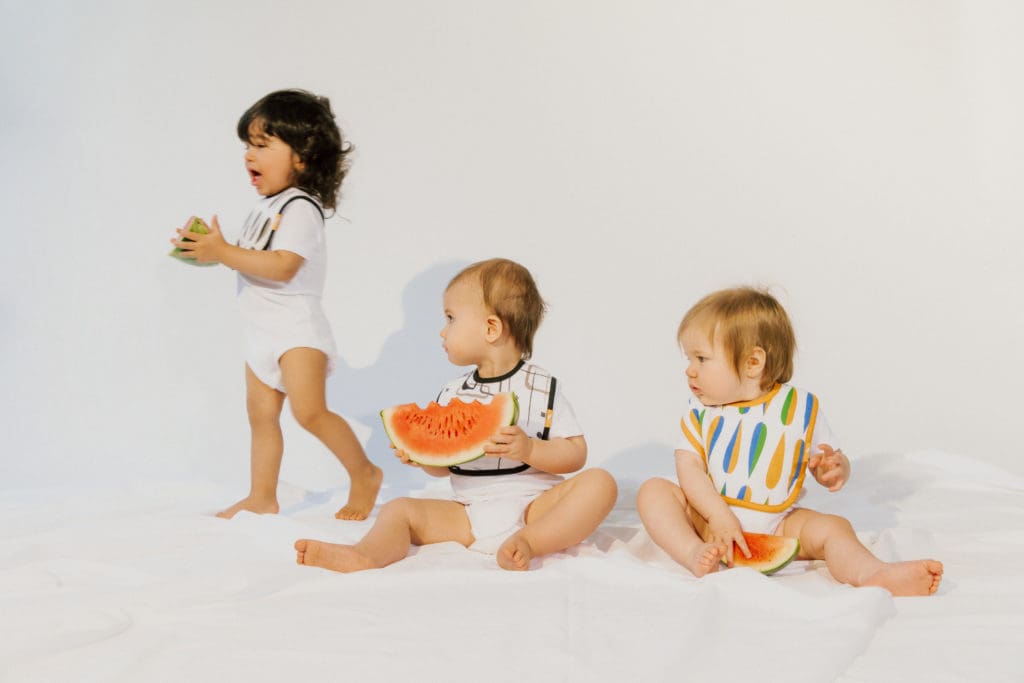
takasa. For Vancouver couple Ruby and Kuljit Rakhra, 2020 was going to be a chaotic year no matter what, with their third child on the way and a new company also being born. In early March of last year, just as they were about to fly to a trade show in Toronto for Takasa’s official launch, COVID-19 brought the whole world to a halt. But the Rakhras didn’t let a global pandemic—or a brand-new baby—stand in their way. “Luckily, he was a very good baby. He hasn’t given us any trouble,” Ruby says with a laugh. And because Takasa was always planned to be ecommerce, the pandemic didn’t alter the plans for the company much.
The desire to start Takasa had been growing for several years, ever since a home renovation caused the Rakhras to seek out eco-friendly materials for their living room and bedroom. In their research, they were horrified to learn about common practices in the textile industry: pesticides used for traditional cotton, harmful chemicals in most dyes, horrendous working conditions. When they couldn’t find the environmental and ethical products they were looking for, they decided to make these products themselves.
Kuljit explains, “We just thought that if we’re going to start a business, we’re going to make sure that from the seed all the way to final delivery, everyone’s getting paid properly. Everyone’s being treated humanely.” Ruby adds, “We wanted to make sure that whatever we were going to do, it was going to be impactful and make a difference.”
Takasa now sells sheets, duvet covers, pillowcases, towels and baby items that are organic and fair-trade. Ruby says the company name comes from a Swahili word that means “to purify, to make clean.” The designs and colour palette are all clean and simple—with the notable exception of a new, delightfully eye-catching baby line. These swaddles, bibs, burp cloths, washcloths and hooded towels feature striking mid-century modern patterns that Ruby describes as “clean but a little bit snazzy.”
The Rakhras plan to keep growing their brand, moving beyond the bedroom and bathroom to outfit the whole house. They hope their children will become interested in the family business at some point. The older two, at ages 10 and 11, are especially good at testing their parents’ creations. According to Kuljit, “They’re great product testers because they have no filter.”
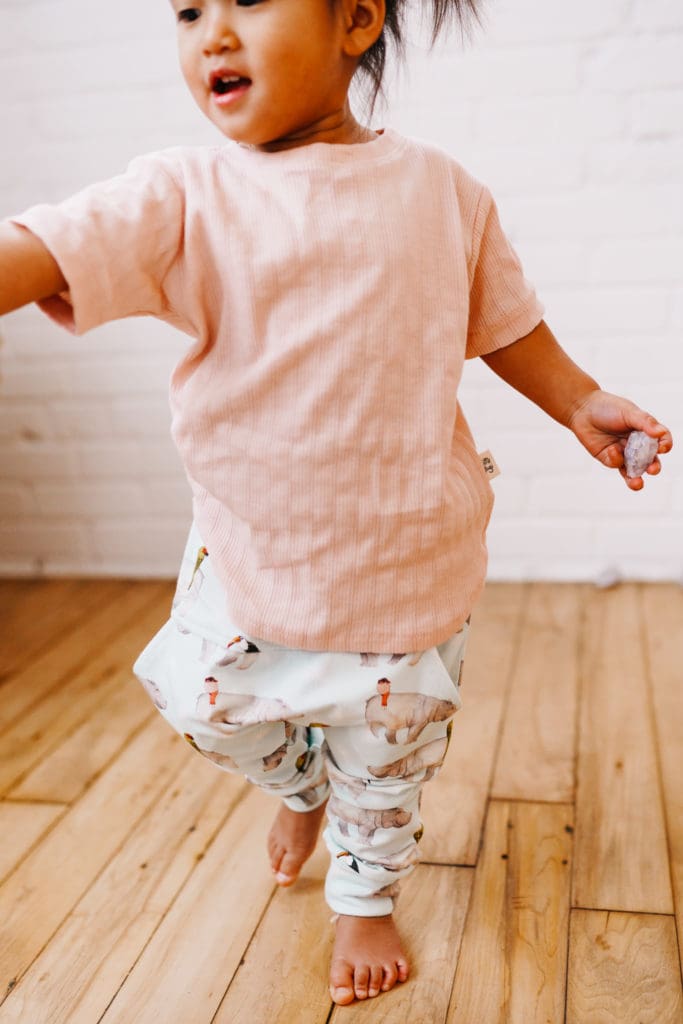
little yogi. It was 2016, and Nancy Caouette was shopping for baby clothing for friends and family members who were expecting. The stereotypes she saw shocked her: “One side was all pink and glitters and princesses, and on the other side it was courageous little boys.” She asked herself what impact this messaging must have on girls and boys, then headed to her mother’s house with an armful of fabric and a head full of ideas for unisex baby clothing. Caouette’s mom, who is skilled at sewing and DIY projects, rolled up her sleeves and helped.
After making gifts for the moms-to-be in her life, Caouette had several outfits left over that she posted on Facebook. She received 100 orders almost immediately. Soon, she realized she was more interested in making baby clothes than in continuing her career as a therapist. “Six months later, I left my career and my studies behind, and I officially launched the company,” she says.
From the start, the Quebec brand has focused on sustainability and durability, opting for high-quality organic cotton and bamboo fabrics as well as non-toxic water-based inks. Tanks, tees, dresses, rompers and gowns are all designed to be comfortable but tough, allowing each child “to move like a little yogi.”
Caouette is particularly proud of the grow-with-me Harem Pants, with their adjustable waist and ankle bands offering a fit that adapts to the ever-changing size of a growing child. She says, “They fit forever and, because of the quality, not only do they grow with the kids but they also stay beautiful, wash after wash after wash.” They’re available in solid colours or whimsical prints such as surfers, hippos and flying pigs. Each illustration is drawn by hand then printed on the fabric.
Since starting Little Yogi five years ago, Caouette has scarcely paused to catch her breath. She now has two children, ages three and two, and another one due any day. She’s launching a new swimsuit made from recycled plastic bottles at the end of the month, and she’s also contemplating doing a small run of clothing for women before summer. Despite this hectic pace, she feels no regrets about abandoning her old counselling career to launch her brand: “It was a big step, but the best step I’ve ever taken.”
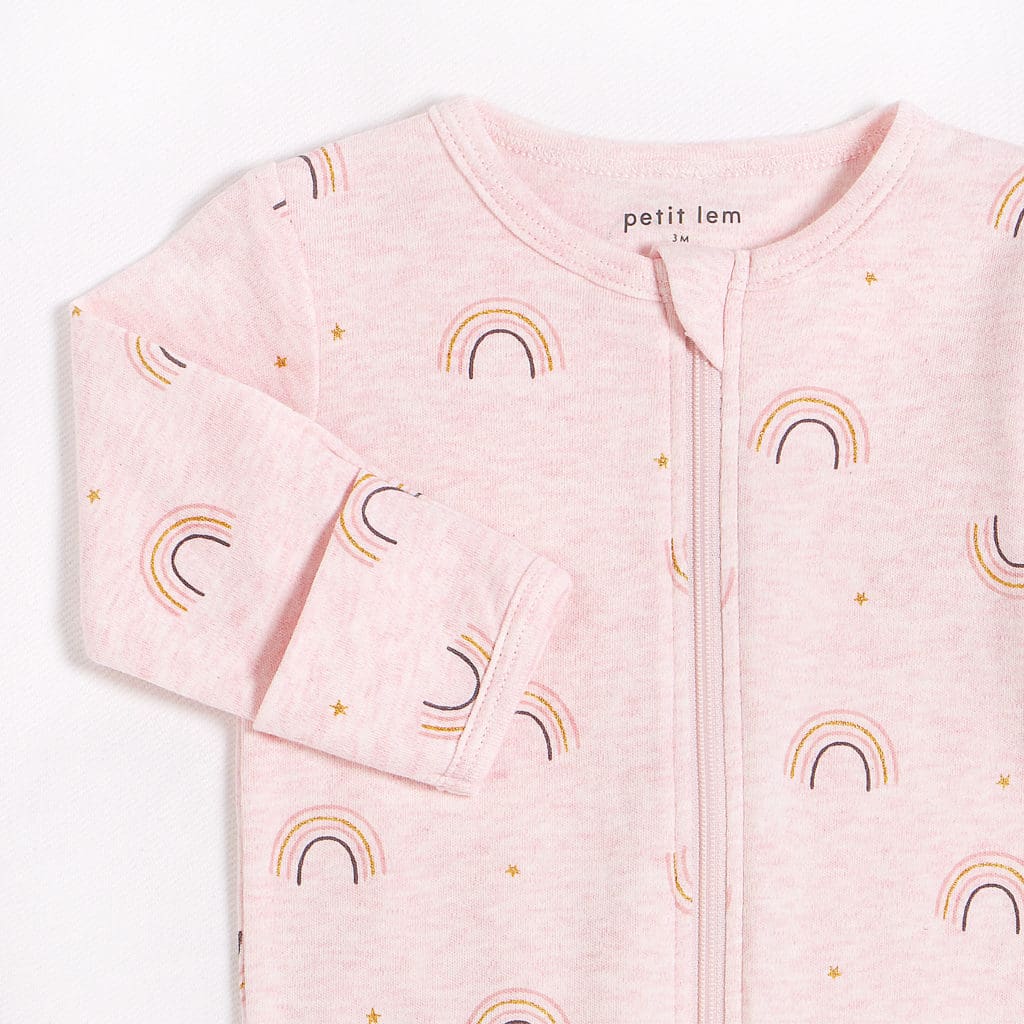
petit lem. Based in Montreal, and with a name that translates to “little lemur,” Petit Lem is a family business that has been going strong for 30 years. According to Emilie Tardif, marketing director for parent company Groupe Lemur, “We launched focusing more on newborns and infants, and now we’re expanding to toddler, junior and even mommy-and-me styles for adults.”
To help parents of newborns, Petit Lem recently released the Layette Collection. It includes all the must-haves for a new bouncing bundle of joy, including sleepers, bodysuits, sleep sacks, hats, socks, bibs, burp towels, swaddles and more. Made from incredibly soft organically grown cotton, the pieces feature cute-as-a-button prints such as rainbows, stars and giraffes.
The goal of Petit Lem has always been to craft high-quality children’s wear that is comfortable and beautiful but also sustainable. “We’ve been sourcing organically grown cotton for years now,” Tardif says. “We’re continuing to look at social responsibility and quality control.”
The brand recently added more styles for women, giving moms the option to “playfully match with their kids and take really sweet photos.” As for the future, Petit Lem plans to add more daywear options and also expand the range of pieces available for the entire family—including furry, four-legged family members.
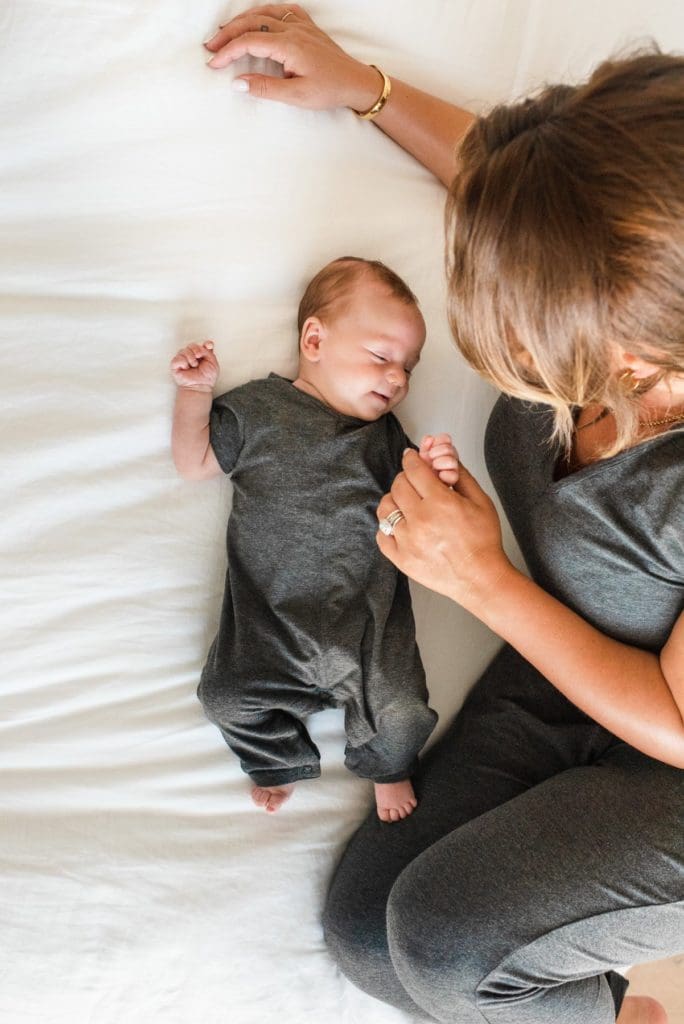
smash + tess. “Am I wearing a romper right now? One hundred per cent,” Ashley Freeborn says with a laugh. She has just a few minutes to chat by phone on a day jam-packed with online panels and awards presentations for Canada’s Top 40 Under 40. Freeborn is being honoured as one of the co-founders of Smash + Tess. She notes that all of the other recipients are wearing suits, while she’s rocking a romper with a blazer overtop. That sartorial choice won’t surprise anyone who knows Freeborn—after all, she has built her company on disrupting the fashion industry.
“We like to say we’re pioneering the romper revolution,” she says. “The idea is that we make clothes to fit women’s bodies and not the other way around.” Though Freeborn started out teaching high-school English and theatre, in 2016 she launched Smash + Tess with her mother (Tess) and her best friend. Freeborn herself is Smash, a nickname she earned as “the klutziest person ever,” equally likely to trip over something or walk into a door.
In five short years, the brand has gained a dedicated following of women (along with kids and even some men) who love the stylish-but-soft rompers made from sustainable fabrics. “It’s been a bit of a whirlwind,” Freeborn says. “Like a rocket ship!” The company also sells tops, pants, skirts, dresses and robes. Sizing is inclusive, ranging from XXS Petite to XXXL, and the pieces are all designed in Vancouver and made in North America.
Sales have been especially brisk during the pandemic, as more and more people have discovered rompers as the quintessential work-from-home attire. As for the future, Freeborn hopes “to continue to uplift, encourage and support women who are busy, and really just simplify their lives and bring them joy.”
And yes, Smash + Tess makes rompers for kids, and they’re every bit as popular as the adult versions. In fact, for Mother’s Day, the brand is launching a special edition of its popular Tuesday Romper in the aptly named shade Pop of Pink, with 10 per cent of proceeds going to the BC Women’s Health Foundation. To guarantee the cutest Mother’s Day photo ever, pick up matching rompers for mom and daughter. Freeborn herself has two daughters, and it isn’t hard to guess what all of them will be wearing on May 9.
Win! A Pair Of Kid Harem Pants From Little Yogi!
Congrats Zoe C. of Coquitlam, B.C., who will receive Little Yogi’s hero product: a pair of Harem “grow-with-me” pants of their choice! Please note: if you are the winner, you will receive a DM (direct message) in Instagram directly from @vitadaily.ca. Please be wary of fake accounts, which often use similar handles with an extra or missing letter, number or symbol. We will never ask for a payment or for your credit card number, and we will never ask you to click through a link. If you are unsure whether you have been contacted, via Instagram, by us or a fake account, email us before responding.
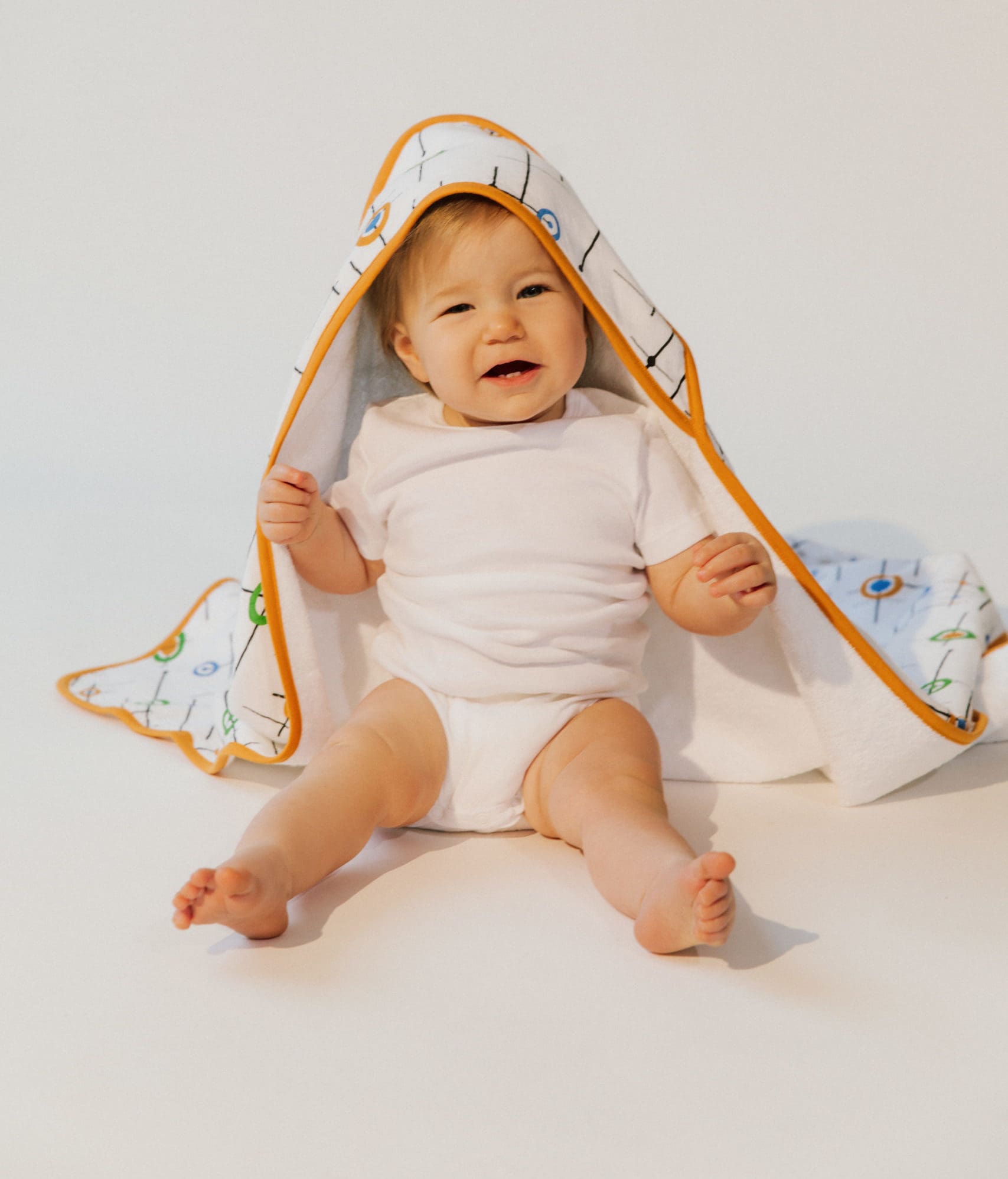
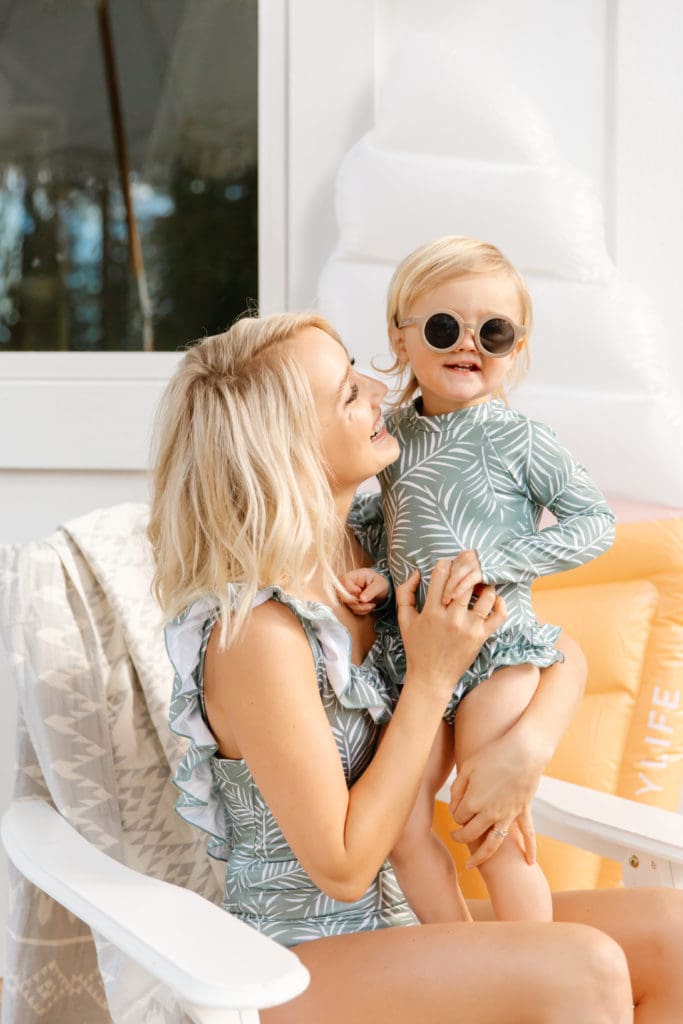
May 7th, 2021 at 10:03 am
I look for softness and quality @asherares
May 7th, 2021 at 10:04 am
Good quality clothing
@amber_olak
May 7th, 2021 at 11:24 am
durability!
@seafoodmwg on ig (halifax, ns)
May 7th, 2021 at 1:58 pm
Look for soft, comfy and good quality for children cloth!
@Zoeg_chen
May 7th, 2021 at 2:01 pm
I look for durability and comfort
@mmsittie
May 7th, 2021 at 2:28 pm
Softness and uniqueness!
May 7th, 2021 at 4:25 pm
I look for good quality, reasonable price, cute, easy to get on/off, washes well. @lebeau5450
May 7th, 2021 at 6:06 pm
Unique and versatile…gender neutral rocks!
@jasperjune_
May 7th, 2021 at 6:33 pm
@chambersautumn I look for quality and sweet designs.
May 8th, 2021 at 10:58 am
Looking for durability and ease of dressing
May 10th, 2021 at 9:29 am
Quality, affordability, practicality, and cuteness. My Instagram handle is @karinardi79